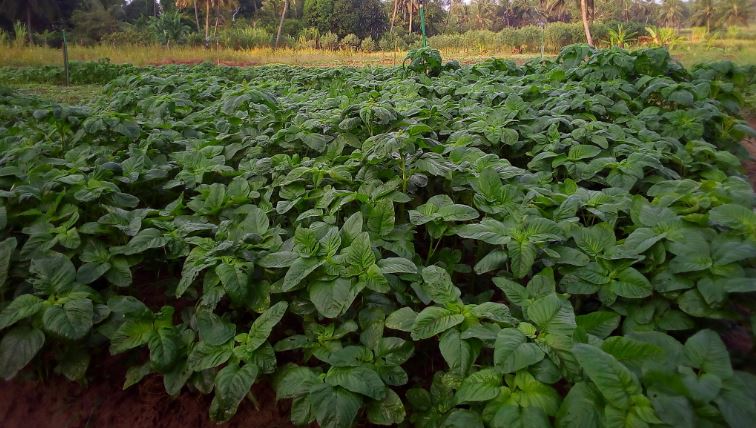The Amaranth crop was traditionally regarded as a common weed, but the vegetable has recently become a favorite dish in many Kenyan households.
The high demand for the vegetable presents an opportunity for farmers to make quick and good cash.
The crop is also grown for its grains, which are among the most sought-after worldwide due to their high protein content of 12-13 percent.
The grains can be roasted and eaten as such or ground to produce flour to make chapati, porridge, cakes, cookies, bread muffins, pasta pancakes, crackers, and fortified maize meal flour. They are also used in making animal feed and skin cosmetics.
Nutritionists assert that Amaranth grains are best for cancer and diabetic patients as they are a good source of fiber, protein, manganese, magnesium, phosphorus, and iron, along with several other important micronutrients.
The crop is relatively tolerant to drought and can withstand low rainfall conditions. According to experts, Amaranth thrives in deep, well-drained soils with high organic matter content.
List of all rare fruits in Kenya earning farmers millions
The crop can be transplanted or sown directly from seeds. Direct seeding is recommended when plenty of seed is available, labour is limited, and during the dry season when the frequency of flooding is less.
On the other hand, transplanting is appropriate when there is limited amount of seed, plenty of labour, and during the wet season when heavy rains and flooding are most likely to wash out seeds.
Depending on the variety, the crop takes 45 to 120 days to mature. It comes in two main varieties: short and tall.
The short variety matures faster, taking between 45-60 days, while the tall variety takes between 70-120 days.
According to Farmers Trend, with proper tilling and maintenance practices, an acre of amaranth can produce up to 800 –1200 kilograms.
Violet Akinyi: We started our 500 piggery unit to sustain our church ministry works
A kilo of the crop is priced at between Sh200-Sh300, with most local companies buying the amaranth products directly from farmers. This translates to up to Sh360,000 in 45-120 days for whatever variety a farmer chooses to grow.
Carolyne Okello, an amaranth farmer from Ringa Kakelo in Homa Bay County, says when she started the venture about seven years ago, amaranth grains fetched Sh150 a kilo, but the prices have gone up due to the high demand.
“In 2016, when I started amaranth farming, I could sell the grains at Sh150 or even less in local markets, but following the pickup in demand even by food processors, the price currently is between Sh200 and Sh300 a kilo,” said Carolyne, as quoted by Kuza.one.
From her 6-acre farm, she harvested 30-35 90kg bags of amaranth grains, translating to 3,150kg, which gave her Sh945,000 gross income after selling at a price of Sh300 per kilo.
Despite the crop’s huge potential, farmers are still struggling to grow it due to various challenges among them lack of certified seed, inadequate information on production and management of the crop, and poor linkage to markets.
To address these challenges the Kenya Agricultural and Livestock Research Organization(KALRO) has partnered with Local NGO to produce Amaranth seeds for commercial purposes as well as create awareness for farmers to reap profits and grow economically.

